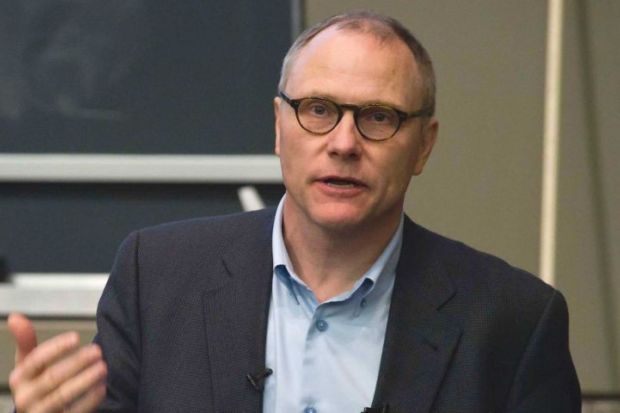The Nobel Prize in economics has been awarded to three US-based researchers who study experiments that occur naturally to better understand processes critical to human well-being.
The Nobel selection committee awarded half the Sveriges Riksbank Prize in Economic Sciences to David Card of the University of California, Berkeley, and the other half jointly to Joshua Angrist of the Massachusetts Institute of Technology and Guido Imbens of Stanford University.
A fourth pioneer in the field, Alan Krueger, a professor of political economy at Princeton University who died in 2019, was a chief research partner to Professor Card, a professor of economics at Berkeley. The Nobel prize, however, is generally not awarded posthumously.
Professors Card and Krueger, at a moment of political debate over minimum wage laws in the 1990s, used fast-food restaurant data from the states of New Jersey and Pennsylvania to show that higher minimum wages did not harm hiring levels or job creation.
Professor Angrist, professor of economics at MIT, and Professor Imbens, professor of economics at Stanford, developed methodological tools that better enable scientific understanding of natural experiments, the Nobel prize committee said.
“Their research has substantially improved our ability to answer key causal questions, which has been of great benefit to society,” Peter Fredriksson, a professor of economics at Uppsala University and chair of the Nobel Economic Sciences Prize Committee, said.
Speaking after the award was announced, Professor Card said his work was largely about getting “more scientific tie-in and evidence-based analysis in economics”.
“Most old-fashioned economists are very theoretical,” he said. “But these days, a large fraction of economics is really very nuts-and-bolts, looking at subjects like education or health, or at the effects of immigration or the effects of wage policies.”
Professor Krueger, a White House labour economics adviser in the Clinton and Obama presidencies, was remembered by many of his colleagues. “The current Nobel Prize is fabulous news,” Cass Sunstein, a university professor at Harvard and White House adviser in the Obama administration, wrote on Twitter. “But applause, and a few tears, for Alan Krueger, a terrific, fun, and generous friend and colleague who surely would have shared it.”
Register to continue
Why register?
- Registration is free and only takes a moment
- Once registered, you can read 3 articles a month
- Sign up for our newsletter
Subscribe
Or subscribe for unlimited access to:
- Unlimited access to news, views, insights & reviews
- Digital editions
- Digital access to THE’s university and college rankings analysis
Already registered or a current subscriber? Login







